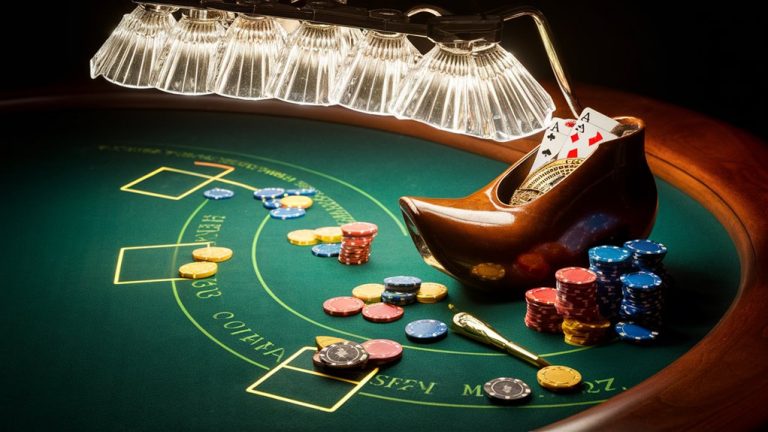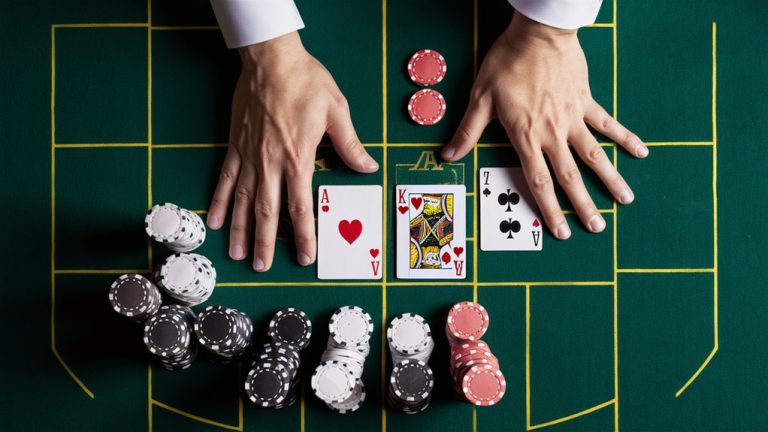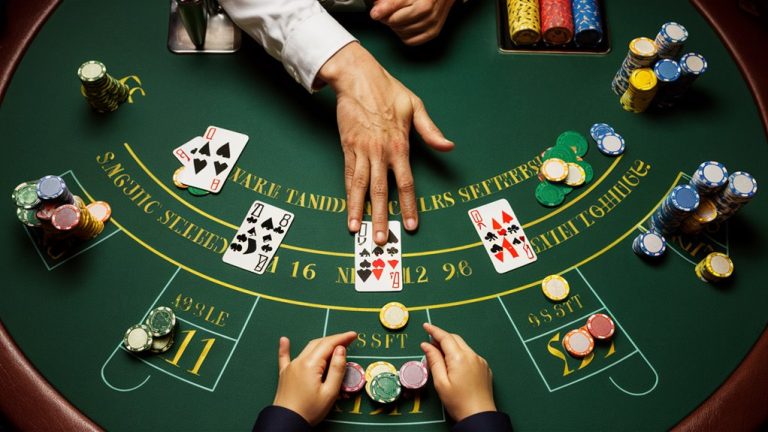
How Luck Works in Gambling: A Simple Look

The Math in Casino Games
In gambling, the chance of each play is set. In European roulette, the chance is exactly 1/37. Slot machines have pay rates set between 85-98%. These are not magic numbers; they are just math.
The Truth About Lucky Streaks
Research says 80% of people who gamble often think they have “lucky streaks.” But these are really just:
- Confirmation bias: Seeing wins more than losses
- Pattern finding: The brain making sense of random events
- Dopamine’s role: Brain chemicals that make us see patterns
Smart Gambling Plans
To gamble well, use: 이 사이트에서 자세히 보기
- Math to understand chances
- Watch the results over time
- Use data to make choices
- Keep your feelings in check
Really Knowing Gambling
To do well in gambling, get the math. The house always has an edge. Smart gamblers use math, not just feelings or guesses.
What Real Gambling Luck Is
Real Gambling Luck: It’s All About Math
The Truth of Casino Luck
Real gambling luck is just math – about chances and how things vary. It’s not some strange force.
Good gambling depends on the solid math of the games.
Math vs. Luck Myths
Chances and how results spread out are the big ideas in gambling math.
Every gambling result follows set rules. What seems like “luck” is just one way things can turn out.
In European roulette, it’s always 1/37, and in American roulette, it’s 1/38 per spin.
Understanding Spreads and Usual Wins
The spread in results shows the real side of gambling luck – the gap between what we expect and the actual short-term results.
People may win or lose in bursts, but over time, it all tends to even out.
The Rule of Many Plays
The rule of many tries says: Over time, results match expected averages.
This rule is a key reason to focus on the math, not just the hot streaks.
All gambling ends up being about the math in the long run.
Smart Gambling Moves
Winning gamblers know their math and don’t just wait for luck.
Skill vs. Chance
Skill vs. Chance in Gambling: What You Need to Know
Big Difference: Skill or Chance
Whether a game is based on skill or just chance makes a big deal.
Poker and blackjack let players use skill to up their chances. They can get better and use math.
But, games like slot machines and roulette just work on random luck. What you do doesn’t change the outcome.
Looking at Game Results
Games of Skill
- Blackjack: Right play cuts the house edge to about 0.5%
- Bad blackjack play: House edge goes over 2%
- Pro poker players: Keep winning 2-3 big blinds per 100 hands
- Long-term poker wins: Skilled folks tend to get money back
Games of Chance
- Slot machines: Pay rates are fixed (85-98%)
- Roulette: House edge does not change
Where Skill and Luck Meet
Stats matter over many games, even though luck mixes things up short-term.
Over many games, skill shows its true power.
This fact explains why you can find pro gamblers in poker but not in games that are all about luck.
Math in Games
The Math That Makes Gambling Work

Building Blocks of Casino Math
Math of chances lays down how we think about wins, payouts, and the edge of the house.
Each game works on its own math rules – like roulette’s 1/37 chances or blackjack’s complex strategy trees.
Getting Your Money’s Worth
Games show their math in things like Return to Player rate (RTP). A 96% RTP means you’d expect $96 back for every $100 you play, over time.
The rule of lots of plays shows how real results close in on what math predicts when you play a lot.
Handling the Ups and Downs
Short-term changes can make wild shifts in gambling results.
Even if losing 10 coin flips in a row is really rare (1 in 1024), it can still happen.
These math ideas help us make smart choices about risk and rewards.
Important Math Ideas in Games
- How results spread out across different games
- Doing the math on expected wins or returns
- Understanding short vs. long-term results
- House edge and game-specific chances
- Assessing risk with math
Mind Tricks Behind Lucky Streaks
Why We Think We’re Lucky: The Mind’s Work in Gambling
Seeing What We Want: Bias and Streaks
Math and odds explain gambling results, but our minds see wins and losses in a way that makes us think we can always win.
Gamblers often believe in the hot hand myth – thinking wins will keep coming.
How Our Mind Sees Gambling
Confirmation bias makes us notice wins more than losses.
This makes us feel like we can control the game or spot patterns.
Studies show that 80% of gamblers think they have lucky times when they play.
Brain Chemicals and Risky Choices
Winning makes our brain release dopamine, which makes us want to keep gambling.
When winning, we might take 30-45% more risks and think less about what we’re doing.
Beliefs at Play
How Beliefs Change Gambling
Game-time Beliefs
Many gamblers hold onto superstitions, with 77% of them doing things they think will help during a game.
These habits show up in ways like avoiding bad numbers or wearing certain clothes.
Routines and Luck
Table rituals include avoiding bad numbers and tapping cards a certain way.
A big study in 2019 found 42% of casino players think they can shape the game’s outcome, even though it’s not true.
Why We Stick to Superstitions
Our brain looks for patterns, making us think we have control during these superstitions.
This makes our brain happy, even if these beliefs don’t really help us win more.
Research shows people with strong superstitions are 23% more likely to bet more than they planned, pointing to bigger issues with responsible gambling.
How Behavior Changes
- Routines change how we bet
- Relying on lucky charms shifts our choices
- Number beliefs guide where we play
- Timing habits shape our game plan
These habits are important in making good gambling policies.
Handling Luck When You Play
Handling Luck in Betting: Using Science
Seeing the Real Chance
Random patterns and solid math shape how games turn out.
Those who get this tend to make better bets than those who think luck is some strange power.
Looking at the numbers helps stop bad bet choices and playing on a whim.
Important Plans for Managing Luck
Setting Clear Rules
Make firm rules on losses and stick to them, no matter how the game is going.
Set clear betting limits before you start to keep your head clear while you play.
Keeping Track of Plays
Keep a full log of all your bets.
This helps you see the true random results, clearing out fake patterns and wishful thinking.
Taking Breaks
Take planned breaks, especially after big wins or losses.
These breaks help you think straight and make good choices.
Staying Logical
Focus on math-based betting, not on how you feel about your luck.
Each bet stands alone, with no link to past plays. Exploring the Evolution of Online Slot Machines
This logical way helps you play responsibly and keep control during ups and downs.
Keeping an Eye on Numbers
Track important things like:
- How many you lose or win
- How long you play
- Your betting habits
- What triggers your emotions
This numbers-focused way confirms the real math behind betting and supports smart, responsible play.




